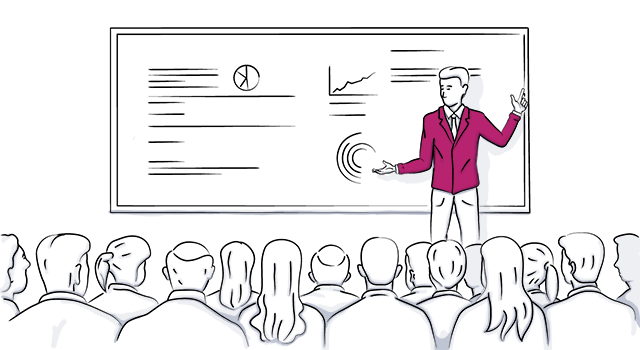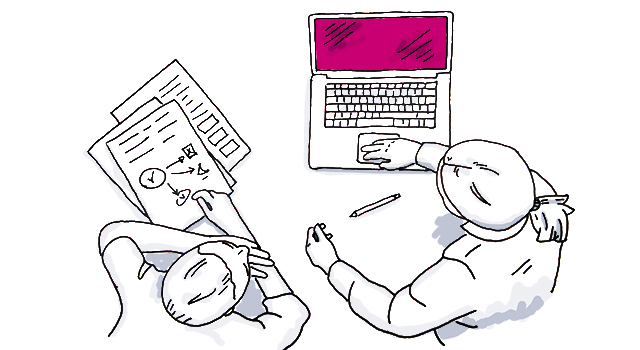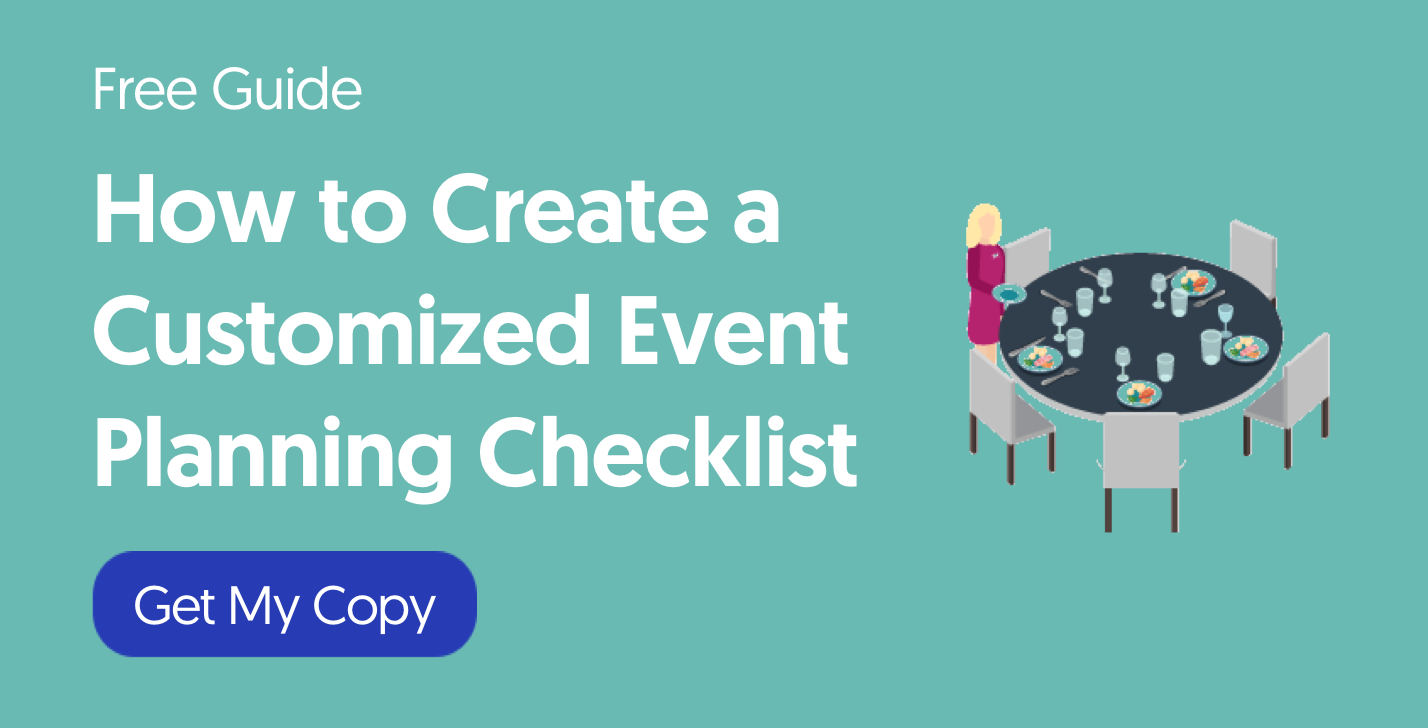
Monday Motivation: Top Client Meeting Tips For Beginner Event Planners
Interested in becoming an event planner, or just starting out? Plenty of resources will help you get an event planning business started with the basics: putting together a business plan, a price sheet, and a marketing strategy.
These tasks might not be a total thrill, but it’s as true in business as it is in events: there’s no such thing as too much planning.
You can also plan for success with the face-to-face aspects of your company, such as pitches to potential clients and meetings to clarify event goals. When interacting with prospective clients, even beginner event planners can demonstrate professional-level meeting skills.
Good client meeting skills indicate that working with you will be smooth and rewarding. These skills are critical, and the good news is you can practice and improve them now”even if your event planning business hasn’t had its first client yet. Bonus: these skills are useful at every stage of your career.
Perfect them now, and you will reap the benefits as your business grows.
Top 8 tips for event client meetings
1. Make a personal connection with the client.
It doesn’t have to be deep”in fact, it shouldn’t be”but do make the space for a quick chat before you get down to business. Take your cues from the client’s event, the weather, the surroundings, local sports, or any shared interests. Whether or not the client wants to engage, if your effort is genuine and friendly, it will be appreciated. When you’re ready, you can shift gears with a smile and an, Okay, now down to business.
You can practice this skill in day-to-day life by making brief small talk with people around you, and testing out different conversation openers to see how they work in low-pressure situations.
2. Listen carefully to the client.
What do they want? Of course, you need to know the tangibles”like what type of event, how many attendees, and generally what size budget. Once you define the event goals and objectives, you can move on to the intangibles, like how the client hopes the event will feel: Formal? Businesslike? Professional? Classy? Polished? Relaxing? Effortless? Fun?
Listening is an absolutely essential skill”and it’s one that can be cultivated. Enlist friends or family to role-play client meetings with you. During these sessions, make sure you listen a lot more than you talk.

[Tweet “Good client meeting skills indicate that working with you will be smooth and rewarding.”]
3. Ask for clarity when you don’t understand something.
You don’t have to guess! Especially if you are just getting started becoming an event planner, don’t clam up because you’re afraid a more experienced planner would already know the answers. A good event planner actively seeks an understanding of the client’s needs. Ultimately, you and the client both benefit when your expectations are in-line.
Practice this one in your daily life. (If you find yourself in the rare situation of understanding every single thing around you, all day long, every single day, you might consider getting outside your comfort zone. Then you can practice this one.)
4. State back what you hear.
So you’re listening for what’s important to the client: great job. You’re asking questions to make sure you understand: superb.
Then, when you think you understand, state it back. So what I’m hearing is that you want an event that feels both classy and fun? If you hear hesitation from the client about your summary, listen again and ask a few more questions. When you think you’ve got it, re-state your new understanding.
Listening, asking for clarity, and stating your understanding are a powerful trio. You don’t have to save them for client meetings; use them the next time you need to hash out ideas or plans with friends, co-workers, or family. Notice whether there is one part of the listening / clarifying / re-stating technique that gives you particular trouble. If so, you know what to do”practice that one.
5. Arrive prepared and offer recommendations.
Do your prep work ahead of time so that you already have a range of options in mind. Once you understand what the client is going for, if you see a way to improve an aspect of their plan, don’t be shy! Even if you are just getting started in event planning, you have the experience, ideas, and a mindset about events that the client may not have.
Particular points that often come up at a first meeting include timeline suggestions, venue ideas, and budget-friendly ways to improve the attendee experience. Do your prep work in these areas and you are likely to have useful suggestions. If so, don’t keep them secret until your clients sign the contract. Input like this at the initial meeting can demonstrate how valuable your services are.
6. Look out for the clients’ best interests.
Some clients might not realize that their expectations are unrealistic. A planner is responsible for spotting any big disconnects and managing the client’s expectations.
If you’ve done your research, you’ll probably have some good options in your pocket that you can use to redirect the client, such as venues at a range of prices, flexibility with dates, and other ways to cut down the budget.

7. Communicate often and with transparency.
Let’s say you made a personal connection, understood your client’s needs, demonstrated your value, and they signed a contract. Great! The need to make a good impression doesn’t end there. On the contrary”as you busily plan their precious event, the client is going to want to know what you’re up to.
Can the client expect a weekly email update? A twice-weekly phone conference? Something else? If you’re flexible, let the client choose what works best, but establish the communication schedule clearly.

8. Set up communication parameters.
You want a sustainable plan for ongoing communication that keeps BOTH you and the client happy. Is responding to panicked late-night texts just part of the service that you offer? Or is your standard that communication received after 7 pm will receive a response by 10 am the next day?
Whatever your policy is, make it clear at the outset to reduce stress or confusion later.
Want to learn event more beginner event planner tips?
It’s easy to get start in event planning. Just follow these steps:
Step 1: Invest in education through online courses, formal schooling, and reading books.
Step 2: Take any experience you can get to build your skills – volunteer to help with events, work as catering support staff, etc.
Step 3: Get certified as a Certified Meeting Professional or Certified Meeting Manager.
Step 4: Create your online event planning portfolio. Showcase testimonials from experiences you’ve had, be up-front about your rates, and create a compelling offer, such as doing each client’s first planning session for free.
Step 5: Reach out to your network, and ask for referrals, to help find your first clients.
Without getting a degree, you can become an event planner by:
Step 1: Build your skills by taking on any type of events work – volunteer to help with charity events, work as catering support staff, etc.
Step 2: Do as much research and learning as you can by attending events, reading books, taking online courses, and subscribing to blogs.
Step 3: Create an event and invite people you know. Ensure they have a great experience!
Step 4: Create your online event planning portfolio. Showcase testimonials from people who went to your event, be up-front about your rates, and create a compelling offer, such as doing each client’s first planning session for free.
Step 5: Reach out to your network, and ask for referrals, to help find your first clients.
Step 1: Finalize your event goal and objectives.
Step 2: Identify the type of event, the event audience, and the event theme.
Step 3: Get specific about logistics such as date and time, and location.
Step 4: Finalize your event budget. And reach out to event sponsors if necessary.
Step 5: Design your event by selecting a venue, catering, and experiences (such as speakers, music, photographers, and more).
Step 6: Create a day-of plan with all your event details and share it with staff.
Event planners make money by charging clients for their services. Event planner cost models include a percentage of event revenue (typically 15%), charging by the hour, charging a per event project rate, and a la carte customization.
All of the above professional skills”connecting, understanding, being prepared, and establishing clear communication”give clients a welcome sense of confidence that working with you will be as smooth and enjoyable as the events you plan.
Looking for other ways to elevate your event planning and wow clients? Check out our free event planning tools, learn 10 event planning tips for budding event planners, and check out 4 event concepts that improve the attendee experience.

